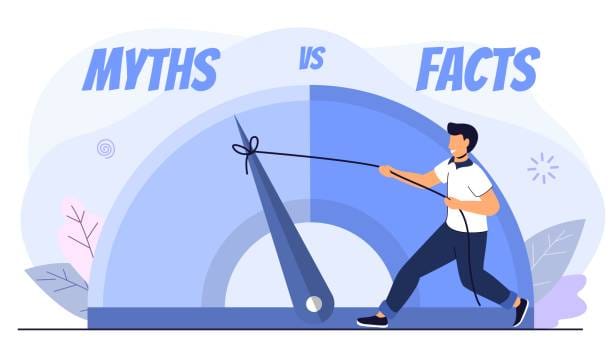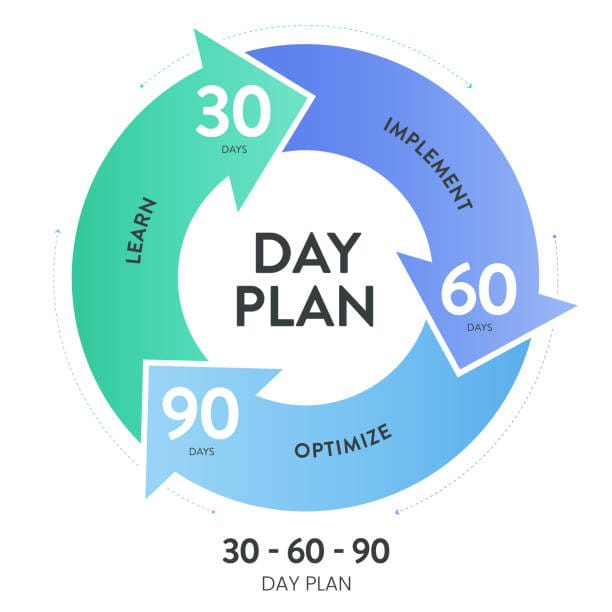Top Credit Score Myths That Are Holding You Back

Your credit score is more than just a number — it’s a gateway to financial freedom. Whether you're applying for a home loan, credit card, or even a mobile connection, your credit score can influence approval, interest rates, and terms. But in India, widespread misinformation and credit score myths continue to misguide consumers, keeping them from reaching their full credit potential.
From fearing credit inquiries to misunderstanding the impact of EMIs, these myths are not just harmless misconceptions — they could be actively hurting your financial health. In this blog, we’re debunking credit score myths that are holding you back from building a strong, reliable credit history. Let’s uncover the truth and help you make smarter credit decisions by clearing out the most common credit score myths.
Debunking Credit Score Misconceptions in India
India is still evolving in terms of credit literacy. And with limited access to transparent credit education, credit score misconceptions spread fast. Let’s break down the most common credit myths in India so you can protect and grow your financial credibility.
1. Myth: Checking your credit score lowers it
Truth: This is one of the most widely believed CIBIL score myths. There are two types of credit inquiries: soft and hard. When you check your credit score using tools like GoodScore, it's a soft inquiry and has zero impact on your score.
Only hard inquiries made by lenders during loan or credit card applications can temporarily affect your score.
2. Myth: A high income means a high credit score
Truth: Income and credit score are not directly connected. You can earn ₹2 lakhs a month and still have a poor credit score if you miss EMIs or don’t manage your credit well. What matters is your repayment behaviour, credit utilisation, and credit history, not how much you earn.
3. Myth: Closing old credit cards improves your score
Truth: Closing long-standing credit cards can actually lower your credit score. That’s because it reduces your average credit age and increases your credit utilisation ratio. Instead, consider keeping old cards active with small payments and timely credit payment adds.
4. Myth: One missed payment doesn’t matter
Truth: Even one delayed EMI or credit card bill can drop your credit score by several points. Credit bureaus track payment history very closely. Consistent bill payment and timely loan EMI payments are crucial for maintaining a good credit report.
5. Myth: Paying off a loan removes it from your report instantly
Truth: Paying off a loan doesn't make it disappear immediately from your credit report. It usually takes 30-45 days for the update. However, the closed loan still shows up as a positive entry, helping improve your score over time, if the payment was made on time.
6. Myth: You need to carry a balance to build credit
Truth: Carrying a credit card balance and paying only the minimum amount doesn’t help — it hurts! The best way to build a credit score is to pay your dues in full every month. Revolving credit adds interest, increasing your liability.
7. Myth: Your credit score doesn’t matter if you don’t plan to take a loan
Truth: A credit score affects more than just loans. It can influence your rent agreement approvals, insurance premiums, and even job applications in some industries. It’s a crucial part of your financial identity.
Top 5 Proven Ways to Avoid Credit Score Misconceptions
Here’s how you can shield yourself from credit misconceptions and build a reliable credit profile:
1. Educate Yourself with Reliable Sources
- Use platforms like GoodScore to understand how credit scores work.
- Read financial blogs, government updates, and verified credit bureau reports.
2. Monitor Your Credit Report Regularly
- Check your credit report on GoodScore.
- Identify and correct any discrepancies or errors that may pull your score down.
3. Use Credit Responsibly
- Don’t max out your credit cards.
- Keep your credit utilisation under 30% of your total limit.
4. Pay Bills and EMIs On Time
- Set auto-pay for bill payment add and pay loan EMI without delays.
- Late payments can hurt your score more than you think.
5. Don’t Fall for Quick Fixes
- Stay away from services that promise an “instant fix” to your credit score.
- Credit health is built over time, not overnight.
Conclusion
Now that you know the truth behind these credit score myths, you’re already one step closer to financial empowerment. Misinformation can silently sabotage your efforts to build a solid credit history. Whether it’s ignoring your credit report or assuming income equals a high score, these myths must be left behind.
Check your credit score now and unlock better credit opportunities! Use GoodScore app to check your credit health, track changes, and get personalised tips based on your credit profile.
FAQs
1. What are the common myths about credit scores in India?
A: Some common credit score myths in India include: checking your score lowers it, income directly affects credit score, and one missed payment won’t matter. These are incorrect and can negatively impact your financial decisions.
2. Does checking my credit score often lower it in India?
A: No, checking your own credit score is a soft inquiry and does not lower your score. In fact, it’s a good habit to monitor your score regularly using platforms like GoodScore.
3. How can I avoid credit score myths in India?
A: Educate yourself using trusted platforms, verify information before acting on it, and monitor your credit report regularly. Avoid relying solely on word-of-mouth advice about credit scores.
4. Are credit scores impacted by small mistakes?
A: Yes, even small mistakes like one missed EMI, a delayed bill payment, or exceeding your credit limit can hurt your credit score. Every credit action is tracked and contributes to your score.
5. Can paying off a loan improve my credit score immediately in India?
A: Paying off a loan does help improve your score, but it might not reflect immediately. It typically takes 30–45 days for your credit report to update after the loan is marked as closed.



